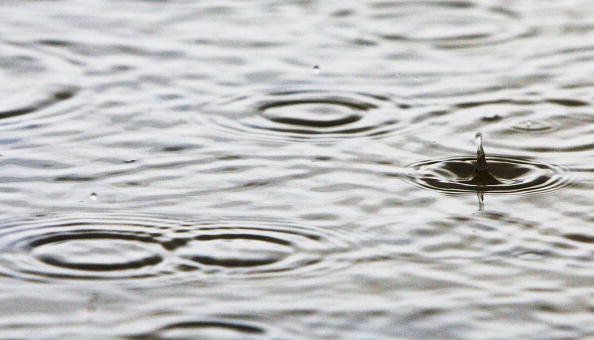If Proposition 6 Passes, What Comes Next for Water in Texas?
Update: Prop 6 passed. Read the full story here.
When voters go to the polls this year, many of them will have only as much information about the constitutional amendments they’re voting on as is provided on the ballot.
That is to say, not much at all, especially when it comes to the major item on the list, Proposition 6.
The ballot refers to the creation of funds for the State Water Plan, a list of projects to improve water supplies across the state, but makes no mention of the dollar figure that would be involved. It mentions financing for water projects, but not why that financing might be needed, or how the projects will be chosen.
You might have better luck learning about Proposition 6 by asking someone whose job hinges on its passage. Bech Bruun is one of Governor Perry’s newly-minted Water Development Board Members, and if the proposition goes forward, they will decide what water projects to lend money to.
“What Proposition 6 would do is, it would move $2 billion from the state’s Rainy Day Fund into a new account, that we will refer to as SWIFT, the State Water Implementation Fund of Texas. And it would allow the Water Development Board to use money from the SWIFT fund for projects in the State’s Water Plan,” he said.
But a vote on the proposition is a vote on even more than that. That’s because of provisions in a law this year that overhauled the Water Development Board.
“One of those provisions is a requirement that not less than 20 percent of the funds out of this new funding source go to conservation of water, or re-use of water,” Ken Kramer told StateImpact Texas.
Kramer works on water issues for the Lone Star Sierra Club and supports the proposition’s passage.
“There’s another ten percent earmarked for projects in rural areas. And that may also include agricultural water conservation measures,” he added.
And this is where we go from what we know for sure about Prop 6 into the world of uncertainty.
Define Conservation

Photo Courtesy of the TWDB
Bech Bruun was appointed to the Texas Water Development Board by Gov. Perry.
Like Kramer says, the rules designate some funding for rural water, and some for conservation or re-use of water. But it’s unclear what those words mean.
“As far as the specific definitions of what will qualify to be conservation or agricultural, [that] will be worked out once we get to that rule-making process,” Bruun says.
If the proposition passes, that means we can expect a robust debate at the Water Development Board over definitions.
“The Sierra Club, and I think many other conservation-oriented organizations, are going to be there at the Water Development Board, pushing for a strong definition of water conservation projects that will allow us to ultimately reduce the amount of water used per capita,” says Kramer of the Sierra Club.
Town and Country
Also unclear is the way the different categories of spending (rural, conservation, agriculture) interact with each other.
“How do those two numbers play together?” Jennifer Garver, the City Manager for Uvalde, Texas, asks.
To put it another way: Garver works in a rural part of the state. But she also wants to encourage conservation. If she asks for a loan would that count out of the rural pot of money? The conservation pot? Or both?
So far, No one knows.
“As far as (whether) counting for one disqualifies counting for another, that type of question will have to be straightened out in the rule-making as well,” Bruun tells StateImpact Texas.
Uvalde’s Garver would also like to understand more about how rural areas will compete with urban areas for funds. House Bill 4, the legislation that sets up the system by which projects will be ranked for loans, says the board should prioritize projects based on the size of the population they serve, but also with an eye to providing assistance to “a diverse urban and rural population.” That dual mandate could contain an inherent contradiction.
“I’m from a small community, so we’re going to have less people served,” says Garver. “So that does make me a little nervous because if you’re only looking at those numbers, then we will not rank towards the top, only the big cities will.”
It could be that uncertainty that has fed rumors that Prop 6 will mean an overhaul of the very laws that govern water rights. The Texas Water Development Board denies the charge (made by some politicians) that the proposition would change the way groundwater rights are determined in Texas. And, indeed, there appears to be nothing in any of the propositions supporting legislation that would indicate that it would — or even could — change water rights.
One Thing For Sure
If there’s one thing that is certain, it’s that Prop 6 would likely spur a burst of interest in the state water planning process, a bottom-up system in which regional groups put together proposals for their areas and then send those up to the state level for inclusion in the State Water Plan.
“I do think that you’re going to see a larger number of — and much more specific — identified projects in the next state water plan,” TWDB’s Bruun says.
Up til now, that process has been more of an exercise in wishful thinking than a real policy discussion. There has simply been no money to fund most of the projects proposed. If Prop 6 passes, the money will be there. That will likely bring more groups to the water-planning table.
“The real key in implementing Prop 6 is, where’s that money going to go?” says the Sierra Club’s Kramer. “That’s where people need to put their effort, their time and their attention. That’s where the Sierra Club is going to put its attention — to make sure Prop 6 lives up to its potential.”
It’s that potential that has also convinced Uvalde’s Garver, despite her questions, to support the proposition. “Don’t let the perfect get in the way of the good,” she says. “We need to move forward, so lets move forward and we can keep working to make it more perfect in the years to come.”
And just as environmentalists will lobby for their projects, cities will advocate for their interests. Rural groups will push for theirs constituent, and industry groups for theirs. Of course first, the money needs to be there. And for that, Prop 6 will need to be approved by Texas voters at the ballot box Tuesday.




